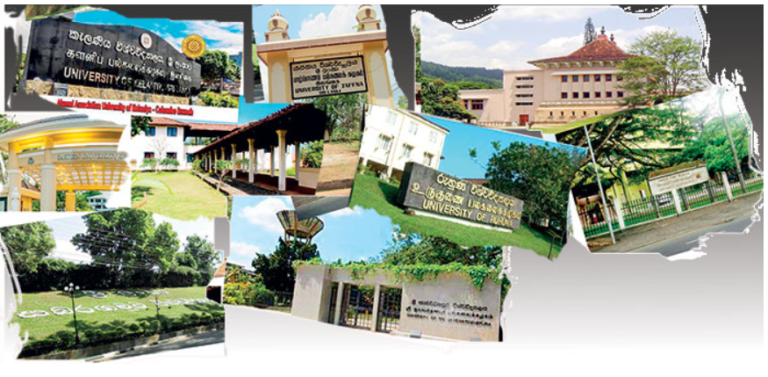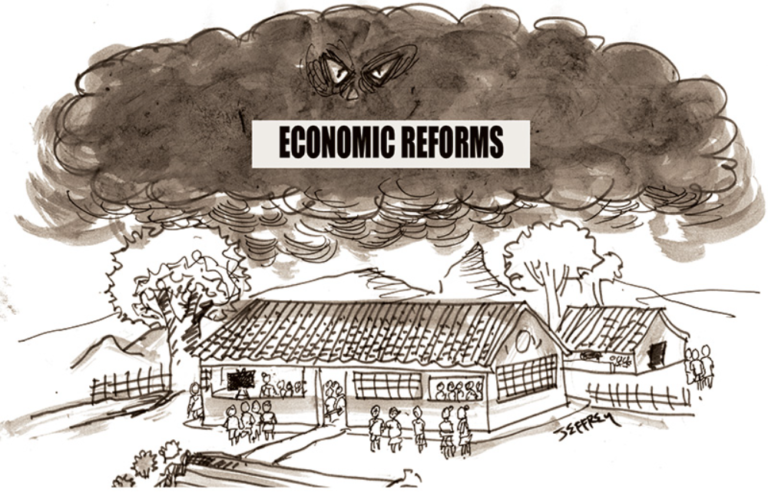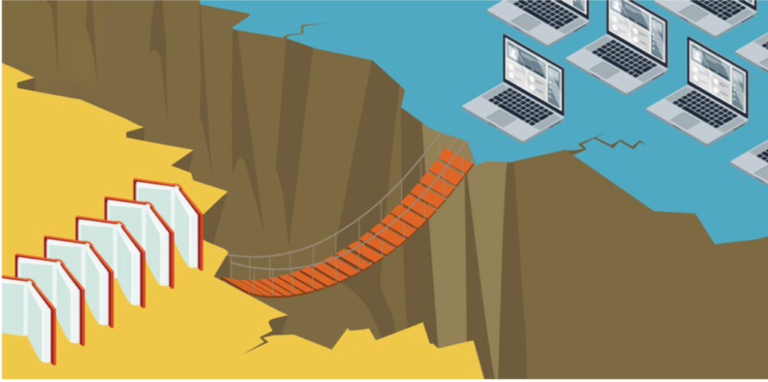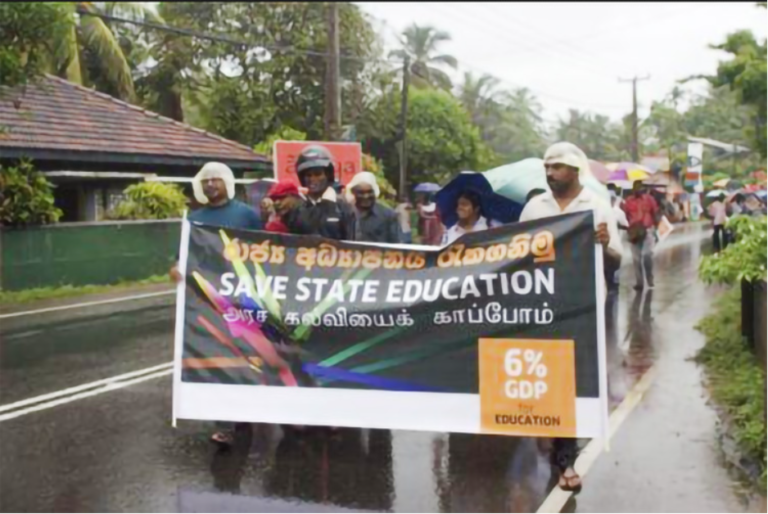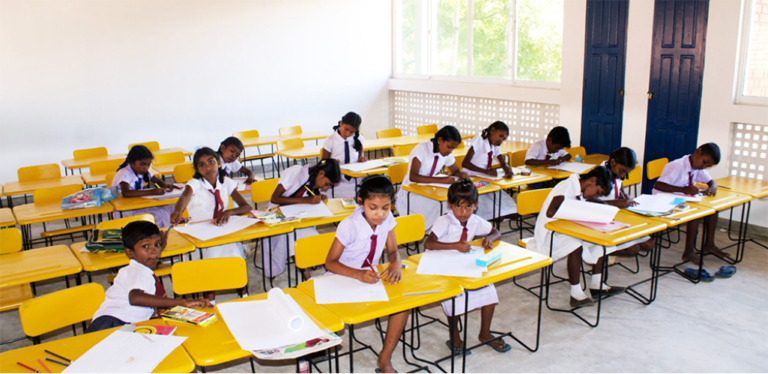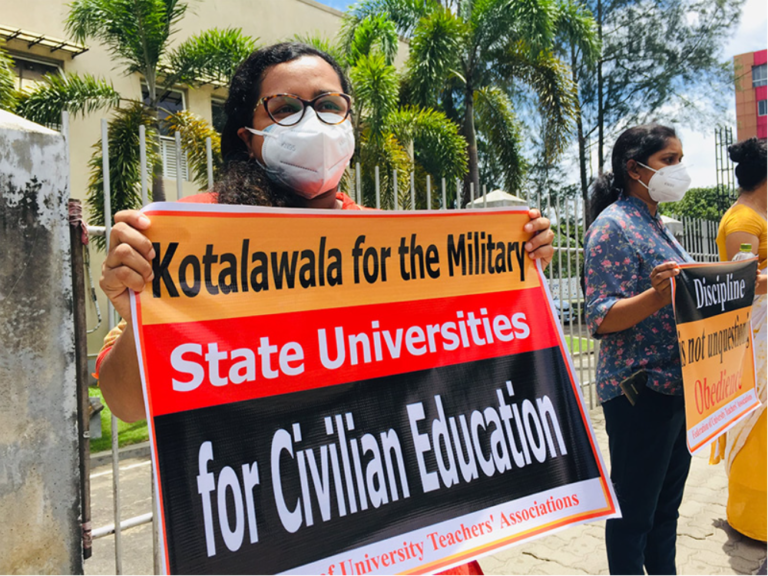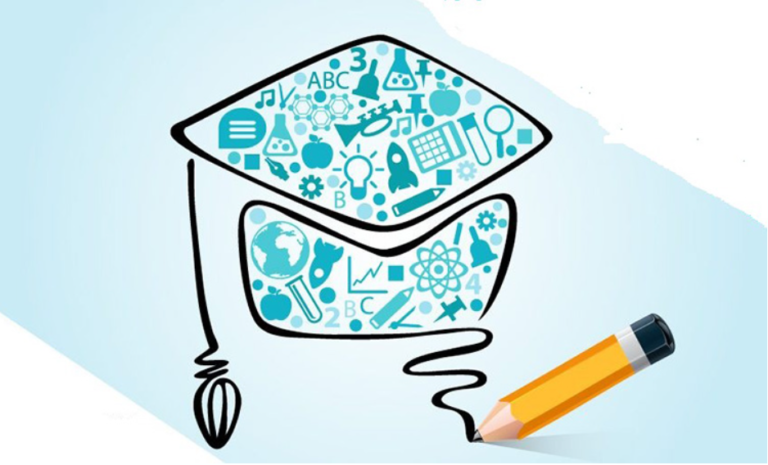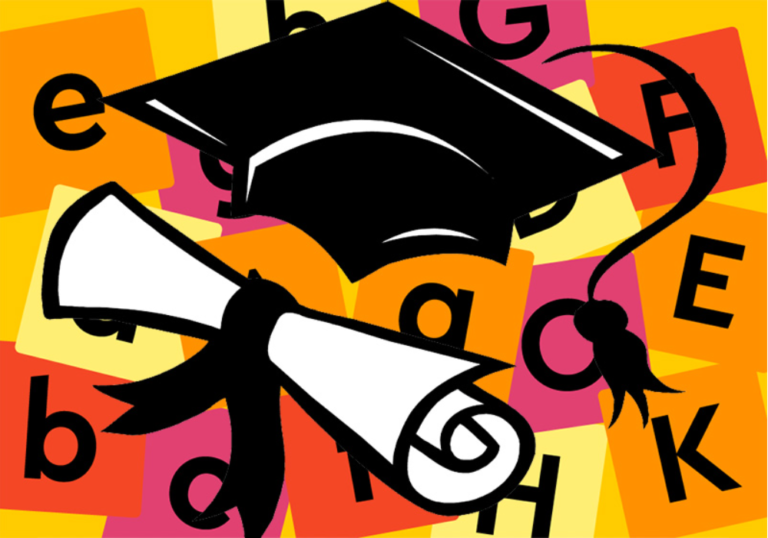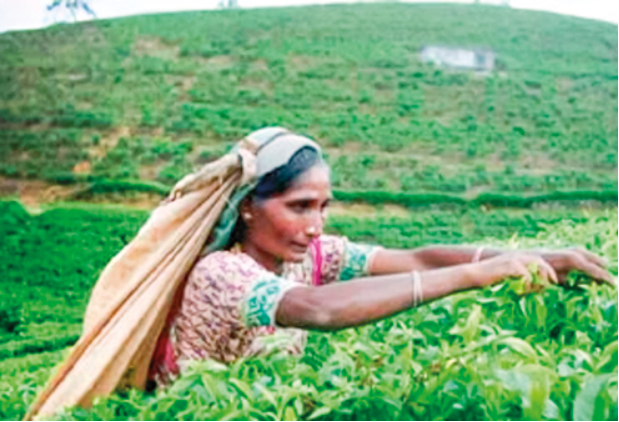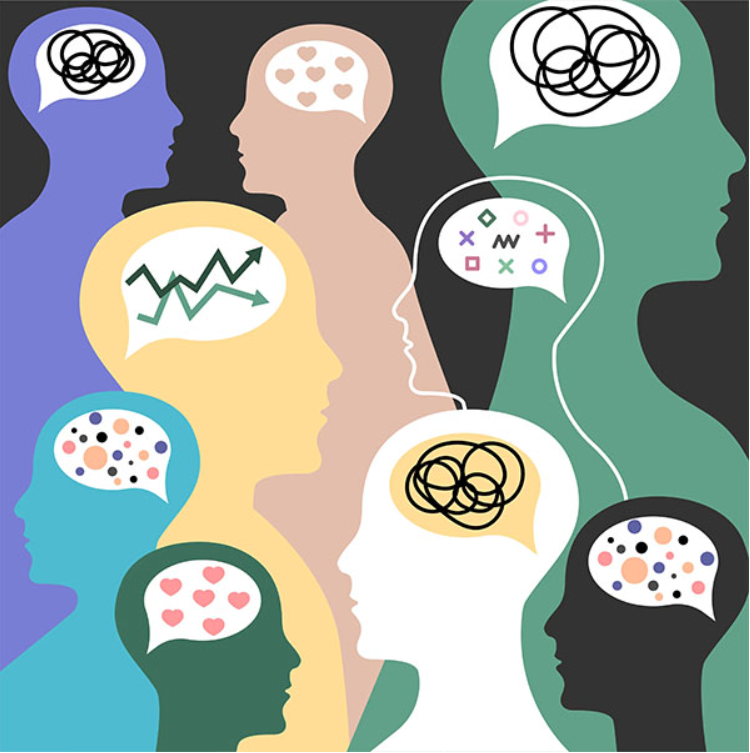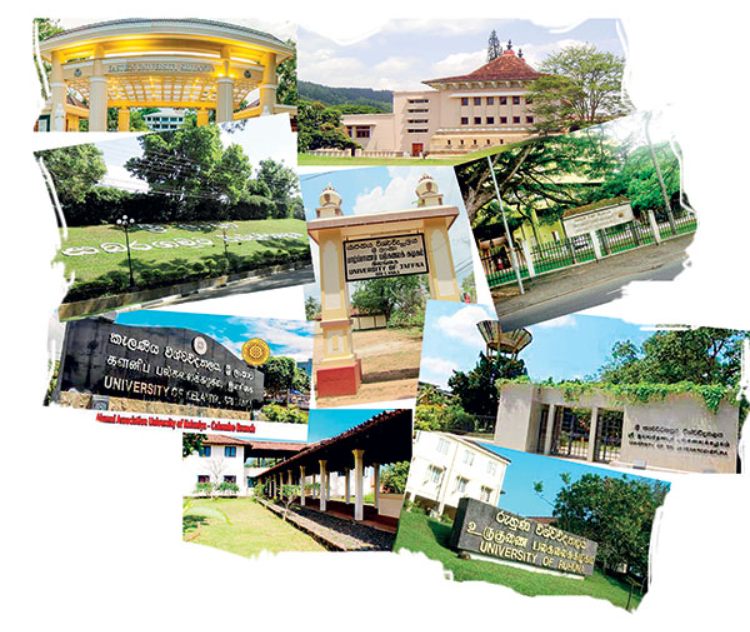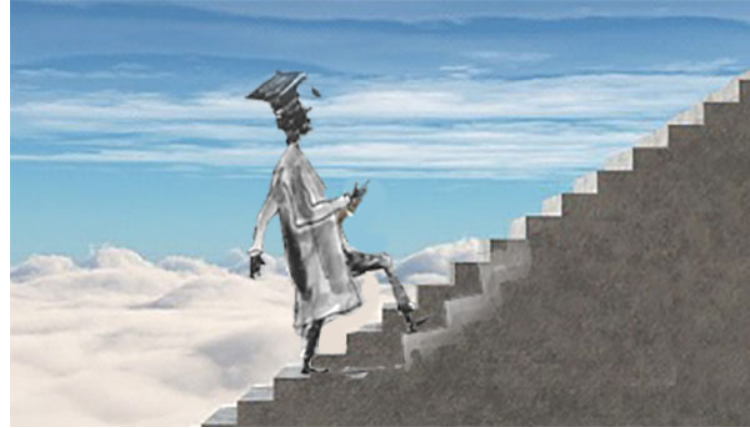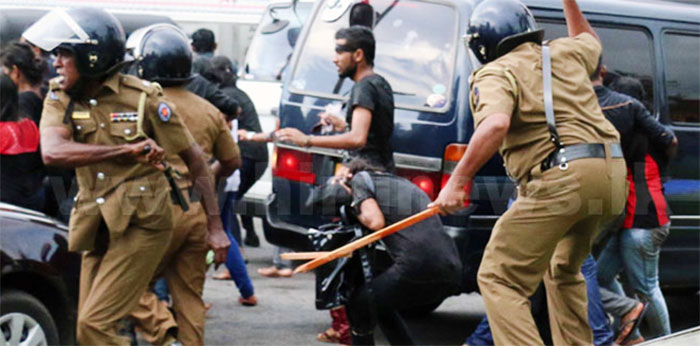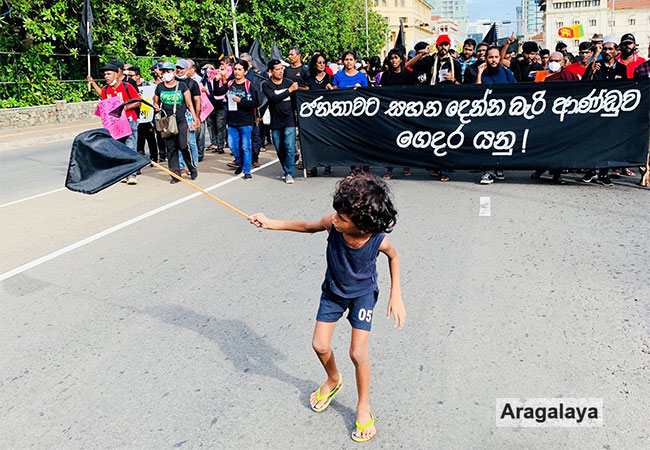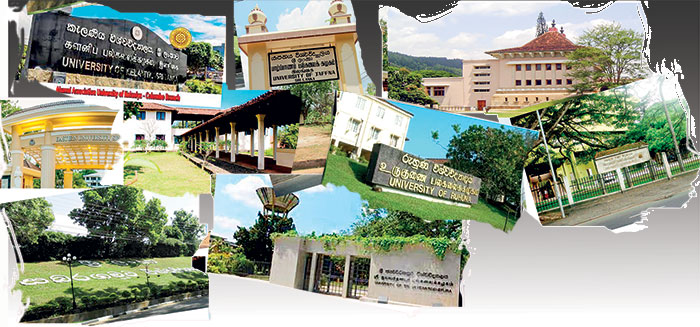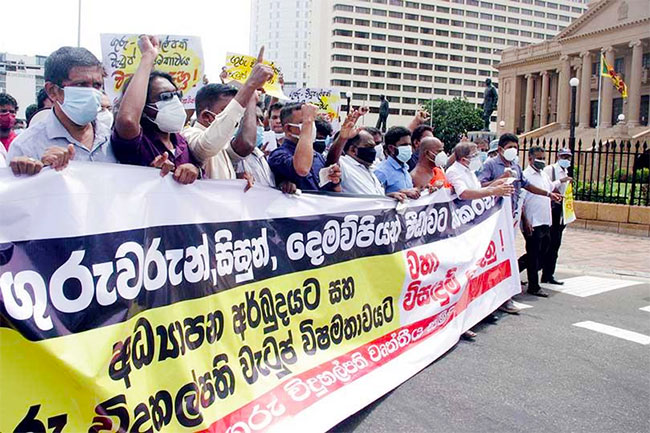Kuppi Talk: The Column
‘Kuppi Talk’, published fortnightly since March, 2021 in The Island is a critical space for activism, dialogue and reflection on free public education, particularly higher education in Sri Lanka. Our articles are published in Sinhala and Tamil in the Anidda and Eelanadu newspapers respectively.
State but not public universities, private but not universities: What do we have in Sri Lanka?
Panduka Karunanayake’s article “Education’s ‘Three E’s’ and the McUniversities: Some Heretical Thoughts” published in the University of Colombo Review (2021, volume 2 issue 1) swiftly...
Read MoreDemystifying standards in English language classroom
In her Kuppi Talk article “The dispossession of a voice through English in Sri Lanka” (6 February 2024), Selvaraj Vishvika delves into the myriad troubles...
Read MoreDebt restructuring and the bleeding of education
Free education is one of the strongest pillars of our society. In this column, I address the consequences for the education sector, after Sri Lanka’s...
Read MoreThe digital divide: AI and its implications for higher education in Sri Lanka
The term ‘digital divide’ emerged in the 1990s in the US to describe regional and class-based inequities in access to information technology (ICT) resources and...
Read MoreIs defunding tertiary education really the need of the hour?
The National Education Policy Framework, (NEPF) the latest in a series of misdirected government interventions to reform education, has by now been roundly critiqued and...
Read MoreFrom reformist pedagogy to revolutionary pedagogy
Having been raised and schooled in Kandy, I have watched the festivities of the Esala Perahera at least 10 times, as a child, and drawn...
Read MoreCalling applications for MBBS! Introducing fees for medical education under military protection
Earlier this month the Cabinet approved a proposal presented by the President (as Minister of Defence) to admit fee-levying local students to the medical faculty...
Read MoreThe case for a ‘university’
Once education is ‘dumbed down’ thus, reduced to a process of acquiring a qualification and a set of competencies as evidence of such, there is...
Read MorePositioning the idea of Sri Lankan English in the field of English language teaching in Sri Lanka
English language teaching (ELT) has been a topic of national significance in the country for the past several decades, particularly since the introduction of the...
Read MoreThe National Education Policy Framework 2023 Higher education captured by Inequality Inc.?
Global inequality is at an all time high. According to a recent Oxfam report (Inequality Inc. January 2024), the richest 1% of the world owns...
Read MoreSaving education: “Up in the sky! It’s a bird! It’s a plane! It’s Superman!”
Education is in trouble. Dhammika Perera and other great men with vast repositories of funds and an admirable charitable proclivity may be indeed a great...
Read MoreSilence in the classroom: Confronting the dynamics of ‘deficiency’
I remember, with unusually vivid clarity, the first time I really noticed the presence of silence in the classroom. One of the lecturers, who was...
Read MoreThe dispossession of a voice through English in Sri Lanka
Mahendran Thiruvarangan in his Kuppi article, “Dissent as education: Teaching in a time of repression” (15.01.2024), referred to the importance of universities being spaces for...
Read MoreDissent as education: Teaching in a time of repression
We have stepped into another year. What does this new year hold for us? There is hardly anything that is new that also gives us...
Read MoreTwo leaves and a bud: the history of Malaiyaham as pedagogy
And I wish to speak of a poet here. Kurinjith Thennavan is an auto-didact. He did not learn to become a writer in our schools...
Read MoreThe promise of ‘English for all’: Gloomy contextual notes and unsolicited advice
I walked into a branch of the Sarasavi bookshop recently, looking for Amarakeerthi Liyanage’s Wishwawidyalayak Yanu Kumakda? [What is a university?] and was told that this...
Read MoreNeurodiversity, inclusive education and quality assurance in Sri Lankan universities
This article discusses the idea of neurodiversity as a point of departure towards imagining our education to be more inclusive. First, I talk about neurodiversity,...
Read MoreA Budget to dismember state universities
Sri Lanka is going through its worst economic crisis since the 1930s, and the stabilisation policies of the Government could drastically change the political economic...
Read MoreThe Charismatic Pedagogue, some reflections
During my introduction and induction to Sri Lankan academia more than a decade ago, I had to undergo teacher training. Such teacher training in higher...
Read MoreFunding and equity principle: Who should pay for higher education?
The education debate in Sri Lanka today, especially as it pertains to higher education (HE) is fraught and confused. On the one hand, we have...
Read MoreStudents with disabilities or universities with disabilities?
It was an unswept corridor with poor ventilation and no fans or air-conditioning, hellish in the scorching Jaffna weather. I see students with disabilities taking...
Read MoreNavigating challenges of dental education in Sri Lanka
One of the principles of free education is to provide opportunities in higher education. In 2020, then-President Gotabaya Rajapaksa issued directives to the University Grants...
Read MorePursuing accountability through privatisation of higher education
Massive changes are sweeping through the higher education sector in the midst of political and economic chaos. As Naomi Klein’s ‘Disaster Capitalism’ thesis cautions us, hasty changes...
Read MoreThe Scapegoating of Humanities and Social Sciences: A Convenient Cover-up?
The Chairman of the University Grants Commission (UGC) of Sri Lanka, Prof. Sampath Amaratunge, is widely being quoted on social media these days as having...
Read MoreSay NO to reforms in higher education
The Parliamentary Select Committee on Education recently released its report on its programme for reforms in general education and higher education. Headed by Dr. Wijedasa...
Read MoreImperative for Academics to engage the public in times of crisis
A couple of weeks ago, I attended the UN conference on Sustainable Development Goals at the University of Hull, in the United Kingdom. The theme...
Read MorePrivate medical schools: Next assault on Free Education?
Interest-free loans of LKR 1.1 million are to be offered for students to follow degree programmes at private higher educational institutions. An amendment to the...
Read MoreA people’s university and a national crisis
I began thinking about this article when the Kuppi Collective began studying the government’s plans to enact labour reforms. We had initiated discussions with others,...
Read MoreConformity, compliance, and complicity: Reflections from a younger academic
I caught myself the other day saying something to this effect in the classroom – “now that you know what I expect, I’d like you...
Read MoreHave Humanities and Social Sciences muddied water enough?
The domain of the humanities and social sciences is under attack more than ever before. The relevance, as well as usefulness of the degrees earned...
Read MoreGender and sexuality in the classroom
The classroom is believed to be a site that nourishes scholarship, diversity, creativity and dissent. It should facilitate students and teachers of diverse genders and...
Read MoreAttracting and retaining academic staff: Perspectives of junior lecturers
Last week’s Kuppi column, by Kaushalya Perera, focused on labour concerns at state universities and the impact of measures taken by the government on the recruitment and...
Read MoreIf universities were car factories …
A couple of years back, at a workshop on graduate employability (sponsored by World Bank loans), we were told that producing graduates was like producing...
Read MoreMcEducation: Issues and challenges in STEM/STEAM education
The Ministry of Education (MoE), the National Science Foundation (NSF), and the National Institute of Education (NIE) jointly organised an event on 31 March 2023...
Read MoreFree Education, Social Welfare and the IMF Programme
Sri Lanka’s seventeenth IMF agreement sealed last week may well prove to be the most devastating one of them all. The reason is that the...
Read MoreCultures of conformity: Disciplining minds and bodies
In Gunadasa Amarasekara’s novel Inimage Ihalata (Up the Ladder), Piyadasa – a young undergraduate from a rural background – has an epiphany while watching the daily deva...
Read MoreThe Future is female?
Statistics from the University Grants Commission (UGC) for 2020 show that out of 109,660 students that constituted the UGC intake for the year, 64.3 %...
Read MoreStudent unions and hegemony: Confrontations and continuations
We, the citizens, were erased from the Independence Day ceremony, presided over by the supreme civil and military leadership of the state, at Galle Face....
Read MorePrivatisation of education and demonising of students of Lanka
Sri Lanka is trapped in debt due to decades of corruption and short-sighted economic policies. To come out of the trap or, I would say,...
Read MoreQuality assurance: The Great Scramble
As Sri Lanka tumbles further into the abyss of economic misery, pressure on state universities to focus more on quality assurance (QA) increases, supposedly to...
Read MoreSecularism, the Muslim body and the Sinhala-Buddhist polity
This short piece is based on an anecdote of a striking memory that I have of a particular classroom at the Faculty of Arts, University...
Read MoreThe Year of 2022: The Democratic Turn
The year 2022 draws to a close, a year that has been the hardest and the most glorious of the past 10 years. It has...
Read MoreTeaching feminism at SL universities
Recently, I was in a discussion on Feminism with the members of the Post-Graduate Research (PGR) community at the University of Hull, in the United...
Read MoreBrain drain and future of medical education
Healthcare is in crisis. Medical doctors, and other health professionals, are leaving the country in droves. The WHO (2010), in its Global Code of Practice...
Read MoreThe burden of our wellbeing: Seeing class within narratives of blame
Any type of protest, today, is met with brutal force and a campaign that systematically attacks its leaders and uses fear tactics to dissuade others....
Read More‘My hope is necessary, but not enough’ teaching and learning Feminism at the University
By Aruni Samarakoon Modern university education was introduced to Ceylon by the British colonisers in 1921 with the establishment of the Ceylon University College, which...
Read MoreRepression, Resistance and the University
By Ahilan Kadirgamar Universities are meant to be open spaces for higher education and the production of knowledge, and in that sense, are considered to...
Read MoreFrom Opposition to alternative? – Some thoughts on the potential and the trajectory of Aragalaya
By Sasindu Patabendige Aragalaya which is/can be (mis)translated to English as ‘struggle’ or ‘revolt’ is getting suppressed and appropriated in multiple ways at the time...
Read MoreMind the gap: SGBV policy and the reality
The phrase Mind the Gap was originally used at railway stations to warn rail passengers to watch out for the space between the train door...
Read MoreFree education is the canary in the coalmine
In the national media of 21 August 2022, the UGC Chairman goes on record saying that, as university authorities deliberate the possibilities of bringing students...
Read MoreSuppressing the struggle: Education and the Discourse of Class
Protesters defeated the dictatorial Rajapaksa regime, making the Rajapaksas resign from their positions, premiership and presidency, of the government. After the collapse of the dynasty,...
Read MoreEducation and healthcare in crisis: Why IMF is not the solution
The rally of July 9th and the events that followed are symbolic of the radical changes in governance demanded by the people of this country....
Read MoreSolidarity and Aragalaya: A few thoughts from an educationist’s perspective
Very little in Sri Lanka at the moment inspires hope. We are facing an existential crisis that was inconceivable just six months ago. Sri Lanka...
Read MoreEducation at a time of economic crisis
The current economic crisis has hit the country’s education sector severely. From pre-school children to undergraduates, students, teachers and non-academic staff attached to our educational...
Read MoreMoving from #GotaGoHome to #SystemChange
#GotaGoHome captures a diverse range of demands. One of these is the demand for ‘kramaya peralamu’ or systemic change.
Read MoreThe university and the present moment of crisis
Sri Lankans continue to protest against a corrupt government and, especially, demand the discontinuation in office of President Gotabaya Rajapaksa and his extended family. As...
Read MoreEducation worthy of this moment of crisis
The education system, to which we belonged, then and today, is not transformative, not in the way we envisioned. As far as education was concerned,...
Read More#GoHomeGota, ‘the struggle’ and the rhetoric
I use the hashtag #GoHomeGota to mark this watershed moment in Sri Lanka’s postcolonial history. It is in honour of the people who have stormed...
Read MoreWhere Arts Faculties should be headed – a rejoinder
Over a month ago, I wrote in this column about the way the current Quality Assurance processes, including the Qualifications framework, has little space for...
Read MoreA crisis ‘in’ Social Sciences education or a crisis ‘of’ Social Sciences education?
A month ago, the University I am attached to, circulated an email to the faculty academics asking them to submit details of their research and...
Read MoreCan outcome-based education get to the heart of the matter?
This article is a continuation of views and opinions expressed in this forum on the quality assurance process in Sri Lankan university education. In this...
Read MoreUndervaluing Social Science and Humanities teaching in the Sri Lankan University System
The Sri Lankan University system celebrated 100 years of university education in the humanities and social sciences in 2021. As part of commemorating the centenary,...
Read MoreDecolonising education and critical thinking
Just as educational institutions served to colonise subjects in colonial settings, the decolonising project also started through education. In the discipline of history, for instance,...
Read MoreCaste and Education in the North
Recently, a Panchamar caste community—a collection of five caste-based communities subjected to systemic oppression and exploitation historically and forming a significant share of Jaffna’s population...
Read MoreTeaching in Northern Sri Lanka: Battling standardisation and Taylorism in education on the margins
UNIVERSITY GRANTS COMMISSION, COLOMBO: “Education in the margins faces a number of pedagogical issues against the backdrop of World Bank or similar donor-funded curriculum-revisions adopted...
Read MoreDominances, hegemonies and diversities
What spaces exist for students and staff of ethnic and religious minorities, within the university? Do students and staff in these groups have the liberty...
Read MoreDecolonising education – a few critical thoughts
For many postcolonial societies, education has historically been one of the primary sites of decolonisation. This is not accidental, since education was a key instrument...
Read MoreEducation for some but not for others: Learning support, disability, and free education
Kuppi Talk stands for democratising education and educational spaces by addressing issues of access, (in)equality, exclusion and marginalization, within our education systems. This Kuppi Talk...
Read MoreDemocratising University Spaces: (Mis)recognising Sexual Harassment and Sexual Violence
Kuppi Talk is committed to democratising education. It is an ongoing process. Our discussion has centred on concerns of militarisation, commodification, corporatisation of education, the...
Read MoreFor better research in Humanities and Social Sciences
By Kaushalya Perera State universities in general, and the Humanities and Social Sciences in particular, are often charged with not doing research. Such allegations and...
Read MoreForm-ation of Higher Education in Sri Lanka
Improving higher education in Sri Lanka is not only important, but essential and long overdue. However, seeking to achieve higher ‘quality’ by ‘form-ising’ the performance...
Read MoreCommodifying ‘Discipline’ and Militarising Education
Disciplining society was a critical political drive behind the election campaigns of the incumbent Government. The majority of people voted for this Government with expectations...
Read MoreIn defence of free education
Sighs of hopelessness and shrugs of resignation follow the phone calls and virtual meetings that reflect my pandemic reality, as we discuss our lives, others,...
Read MoreThe State of emergency and emergences: Democratising education
The KNDU Bill is designed to single-handedly change the face of education in Sri Lanka. Since the ‘90s, successive governments have tried to roll back...
Read MoreCritical thinking and the ‘value’ of university education
‘Critical thinking’ is a term that has become ubiquitous in both general and higher education discourse. One sees this phrase appear frequently in educational policy...
Read MoreThe struggle for a democratic curriculum in neoliberal times
The curriculum taught at a university shapes the way its students perceive education and its roles and purposes, as well as the academic discipline(s) they...
Read MoreThe Question of English
By Nicola Perera The Arts Faculty admits and graduates the largest number of students every year. The private sector tells us that most are unemployable...
Read MoreEveryday violence and exclusion at university
When we talk about violence within our universities, the conversation invariably turns to ragging. Some of us also talk about other forms of violence, such...
Read MoreDecolonising SL universities
Recent socio-political debates in Sri Lanka on higher education suggest that universities are being viewed as neo-liberal institutions set up to produce human capital for...
Read MoreWhat is quality in higher education?
With more interest in the quality of higher education in Sri Lanka than ever before, and with a pandemic forcing far-reaching changes, this is an...
Read More‘Why are Arts graduates unemployable?’
‘Arts people’, since quite some time now, are being pushed to confront this question head-on. Since answers are only as good as the questions that...
Read MoreArts Education in Sri Lanka: Some clarifications
A recent report on higher education published by the National Audit Office (2020) attempted to make a connection between graduate unemployment and Arts education. Today’s...
Read MoreThe role of education in reconciliation
We have seen more blood than this small island can soak. The country has seen decades-long war and two youth insurrections (1971, 1988-89) with thousands...
Read MoreRagging rages on: From Centres to Margins
A student, who publicly described the ragging-related sexual violence he experienced, was accused of having ulterior motives for speaking out. A junior staff member, who...
Read MoreFunding Fallacies in Education
The education system in Sri Lanka is often vilified as being outdated. But the demand for free public education has not relented. Primary and secondary...
Read MoreSetting the Terms of the Debate on Education
“Free Education is not something in the sky. I can touch it, I can feel it.”
Read More